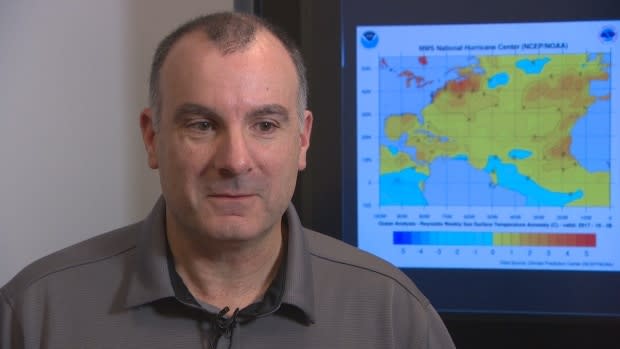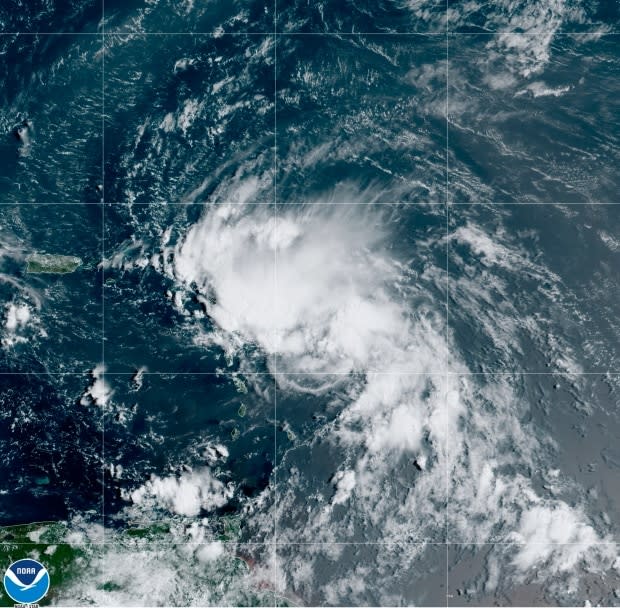Canadian Hurricane Centre predicts rough season ahead for Atlantic Canada

As if the weather in Newfoundland and Labrador weren't already one of the stories of the year in 2020, the Canadian Hurricane Centre says the Atlantic Ocean could see double the usual number of for hurricanes and tropical storms this fall.
Environment Canada meteorologist Bob Robichaud says the newest report from the National Oceanic and Atmospheric Administration has bumped up the number of storms expected earlier this year.
"It's predicted to be well above average in terms of the number of storms," Robichaud told The St. John's Morning Show on Tuesday. In May the administration forecast between 13 and 19 storms, he said, but in its August report now predicts between 19 and 25, well above the average of 12.
Robichaud said the potential increase in the number of storms can attributed to La Niña, which can help bring warm water into the Atlantic Ocean and become a catalyst for more hurricanes.
"When we have a year when we have a La Niña, which is what we're heading toward now, we tend to have less wind shear in the tropical Atlantic," Robichaud said.
"If you take into account that we have warm waters in the tropical Atlantic this year...plus the fact that we have lower wind shear, those two phenomenon are kind of conspiring to result in an active hurricane season."

Robichaud said the hurricane centre is already seeing the signs of an active hurricane season, highlighted by storms Marco and Laura approaching the U.S. gulf coast at the same time.
"It's actually not too unusual to see two storms simultaneously. What we tend to not see quite as often is storms being that close together in roughly the same time frame," he said.
Marco made landfall near Louisiana on Monday, and it is expected Laura could expand quickly in the next 24 to 36 hours.
Robichaud said experts are asking the public to begin storm preparations earlier than usual this fall, as the COVID-19 pandemic has changed business in places such as grocery stores.
"All those preparations that you would typically do once you see a storm that's approaching, get those preparations done way ahead of time so that we don't have to deal with any kind of lineups."
Read more from CBC Newfoundland and Labrador


